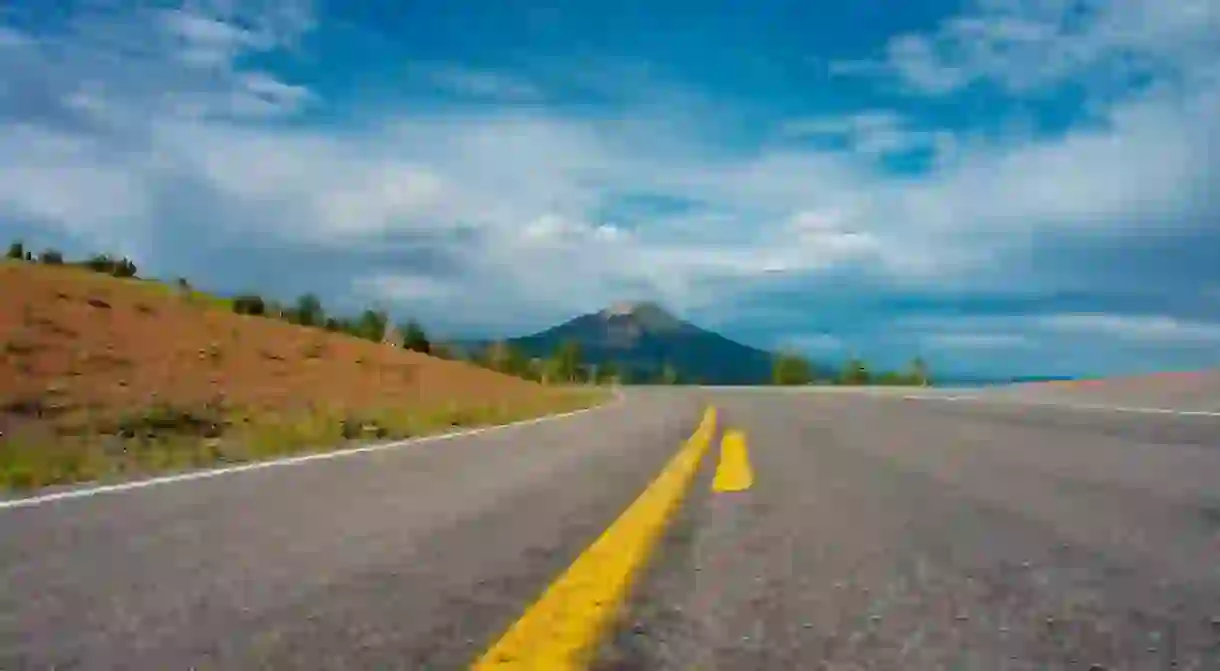Rules You Should Know About When Driving in Costa Rica

The experience of driving in Costa Rica is like playing a real-life video game. There are endless obstacles and unforeseen dangers like seemingly carefree pedestrians, unpredictable animals, pot holes, law dodging drivers, and blinding weather conditions. While the rules of the road in Costa Rica are equivalent to most other places, their enforcement and following are questionable at best. Here’s what you need to know.
Always have your passport
As a foreigner, in order to drive in Costa Rica you must have a valid driver’s license from your home country and a passport with an entry stamp that is not more than three months old. There are random traffic stops by transitos, Costa Rican road officers, and they will ask you for both pieces of identifications if you are driving and stopped at a check point.
Always get car rental insurance
If you are renting a car, it is absolutely imperative that you buy the comprehensive car insurance for the duration of your rental. Car rental companies charge an arm and a leg for even the most minor damage to the car. Avoid heavy fines for scratches obtained when driving on a dirt road or in the unfortunate event that you get into any sort of accident.

Make sure your car is up to date
If you buy or borrow a car from a friend make sure that the yearly marchamo (an annual fee every car owner must pay for using the roadways in Costa Rica) and the car has passed RITEVE (a yearly car inspection that all cars must pass to be road legal). If you get pulled over and either one of these requirements have not been met, your car can be repossessed and impounded, which is a major hassle.
Honk lightly when passing
With the bottom part of the palm of your hand lightly honk twice when passing someone on the road. When you are driving, you will notice that Costa Ricans almost always do this to let the other driver know they are approaching and passing. It is also common to do this same double light honk to say hello to someone when passing by.

Never ever take your eyes off the road
Driving in Costa Rica requires your full and undivided attention. Most roadways don’t have sidewalks, so pedestrians are always walking, biking, or riding horses right on the edge of the road. Buses are speed demons. Children and dogs play and run out into the road unexpectedly. Cows, iguanas, monkeys, sloths, and all sorts of other wildlife can come out of the forests and areas that come right up to the roads at a split second. The roads are also quite narrow in places, don’t have guard rails, and contain plenty of blind curves and sharp turns. There is absolutely no need to speed; you will arrive when you are supposed to arrive.

Don’t tail too closely
Drivers in Costa Rica are known to just turn or stop without using blinkers or giving a warning. People will stop in the middle of the road to chat to someone they know who’s walking or biking or sometimes for no known apparent reason. Collectivos (shared rides) make sudden stops along the roadways to drop and pick up passengers. You also don’t know what obstacles are in front of the driver in front of you, including animals, children, road work, pot holes, random speed bumps, or another stopped car. If the person in front of you is driving far too slowly, turn on your left blinker, lightly honk twice, and pass.
Always walk a river passing first
Some routes might require you to drive across a part of a river. Most of these routes are only passable during the dry season, but even with a lack of rain some can be deep enough to sink your car. It is hard to tell how deep or how strong the current of such a passing is just from looking at it in your car. Unless it is very obvious or you see someone else do it and make it in front of you, put your car in park, roll up your pant legs, and tread into the water to make sure it is safe to drive across. Countless people get swept down rivers or sink their cars because they misjudged the depth or current strength.













